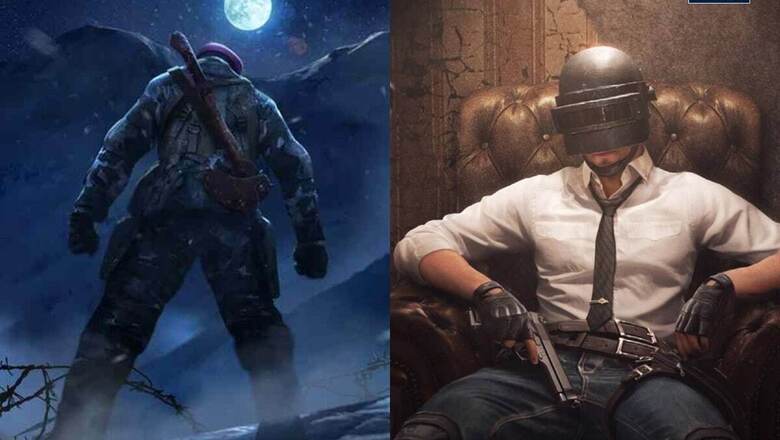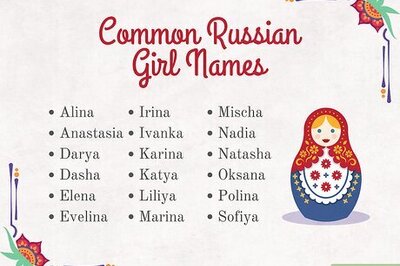
views
Hot on the heels of the central government of India banning ubiquitously popular mobile game PUBG Mobile, Indian game development studio nCore partnered with Bollywood actor Akshay Kumar to announce a made in India combat game, FAU-G. Right then itself, even as the development house continued to ride on a wave of nationalist sentiment fueled by India’s border conflicts with neighbouring nation China, the banned PUBG Mobile still continued to gain more headlines and hype around a potential reversal of the ban, than FAU-G jumping in and stealing PUBG Mobile’s headlines. It perhaps should have been read as clear signs right then, that the hill that nCore’s FAU-G had to climb to endear itself to gamers was always going to be measured against the mountain that was PUBG Mobile, and that is a recipe for a hill too steep to climb.
Understanding the Goliath
To understand why the general strategy may not have quite worked off for nCore and FAU-G, let’s take a look first at exactly what made PUBG Mobile stand out and become as popular as it eventually did. Created by American developer Brendan ‘Playerunknown’ Greene, PUBG was initially launched for PC and consoles as a unique, new survival format. Seemingly random players on the internet come together into one arena of 100 players, and they all jump off a plane and on to an island — armed with absolutely nothing. From here, each player had to sneak around collecting clothing, weapons, protection and more, while continuously converging on to the centre of this island. Eventually, the last man standing gets adjudged as the winner and is rewarded with a chicken dinner.
The format instantly caught fancy of gamers on the internet, tapping into mankind’s very primal instinct — survival. As the game arrived on mobile phones, prospective gamers had, for the first time in their hands, a mobile game that was not a compromise, but an exact representation of the game’s original format that aired on gaming consoles first. This opened up PUBG Mobile to Indian gamers, who were all already using a smartphone (that would cost about Rs 10,000 on average), than be limited to the smaller demographic that own gaming PCs, laptops and consoles (all costing well above Rs 50,000 at the least). PUBG Mobile burst on to Indian gamers, and thanks to PUBG Corp’s robust support of their gamer ecosystem through tournaments and promotions, led to the formation of professional gaming groups backed by sponsors to compete with international rivals.
Overnight, teenage kids armed with a smartphone from tier 2 cities of India and beyond found themselves not just amid hot competition, but in a profession that may not have been possible before PUBG Mobile opened the ecosystem up to this point. This, coupled with an elaborate set of accessories, structured seasons and so on, made PUBG Mobile to not just be a game, but a whole, wide world for gamers to lose themselves in. Only fellow gaming giants such as Activision with Call of Duty Mobile and Garena with Free Fire could hope of rivalling PUBG Mobile and its world on offer, but even CoD Mobile could not, at times, match the household name that PUBG Mobile became.
The wrong side of the table
Naturally, when a game called ‘FAU-G’ was announced right after a game called “PUBG-G” was banned, the similarity was bound to have forced parallels to be drawn between the two. Perhaps nCore’s founder, Vishal Gondal, knew better from the onset, but by then, the game’s name was announced. Speaking in an interview with News18, Gondal had said back in October 2020 that FAU-G will not be a PUBG Mobile rival or alternative. Instead, Gondal attempted to convince everyone that the naming of the game, and the timing of its announcement, really had nothing to do with PUBG Mobile. He wanted FAU-G to be evaluated on its own right, and credit to him for that.
“We have our own storyline, our gameplay mechanics are different. Our storyline follows activities of the Indian Army,” Gondal had said, before adding, “Our future missions in FAU-G may include India’s conflicts at Uri, Kargil, other clashes with Pakistan and so on. Going forward, we will certainly be introducing a wider variety of weapons, and even a battle royale mode.” In essence, Gondal’s nCore wanted to script a game that would be based on real-world military achievements, possibly in hope that the wave of anti-China sentiments prevalent across all of our country would help the game stand out.
To do that, FAU-G needed to have been absolutely outstanding in the gameplay and storytelling departments. It had to have not just been a nominal experience, but one that was rich and layered. One can understand the limitations of such a game strategy and why a fully open world within the game may have been restricted, but the overall mechanism simply had to be better than what FAU-G eventually debuted with on India’s 72nd Republic Day, earlier this week. In the end, even though Gondal vouches that FAU-G will keep adding to the game with new weapons, new storylines, combats, missions and even a battle royale mode, one wonders if all of this should have come right away, and in the end, all this would be is a missed opportunity. After all, it only makes sense to expand a game that has active players in it. With FAU-G being a finite, limited game that would not really offer anything new if you play it the next time, it is highly unlikely that gamers would keep coming back to it again and again, to experience something new.
It is the latter that served as one of the charms of PUBG Mobile — something new, every time a user would play the game. FAU-G, by shaping itself up as a mission-based game but with (very) limited elements at debut, set itself too difficult a task and firmly cemented itself as one that lived in PUBG Mobile’s shadow, even in the latter’s absence. Minus the announcement date and the name similarities, and a full-fledged launch complete with multiple elaborate missions and stories to play through, FAU-G could have been a very interesting game to play. Right now, it is unfortunately far from so.
Read all the Latest News, Breaking News and Coronavirus News here


















Comments
0 comment